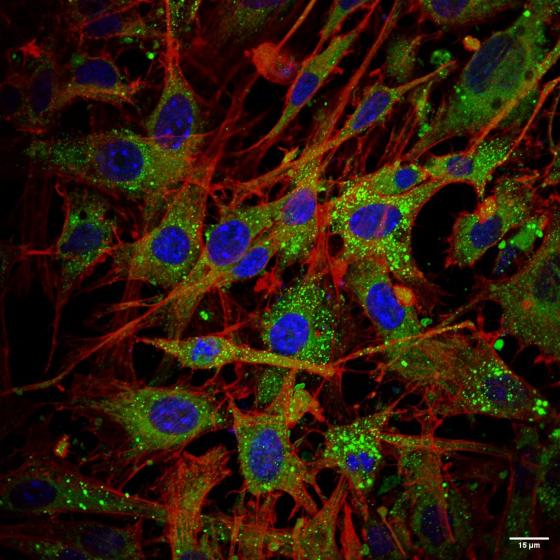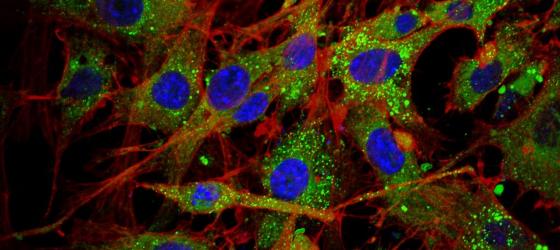The basic and applied research is aimed at studying the network of relationships between living organisms, including humans, and environmental factors playing effects on human health.
Understanding of the mechanisms through which toxic/carcinogenic substances trigger neoplastic processes, alteration of physiological homeostasis, stress, etc. is a major public health issue.
One of the challenges of the coming years for the scientific community will be to improve knowledge of relationships between diet, health and the environment.
Food is increasingly at the center of the world's health, environmental, social and economic challenges.
Within this research line, DISTAV researchers carry out multiple research activities, including:
- Study of lipid homeostasis and oxidative stress in cellular models of metabolic disorders caused by endogenous or exogenous factors (E. Grasselli, L. Vergani)
- Study of the structure-function correlation of chromatin in experimental models of cell differentiation and neoplastic transformation (L. Vergani)
- Study of the toxicity and carcinogenicity of mineral fibers through physiologically relevant in vitro human models such as reconstituted lung tissues, or organoids, even in the presence of the immune component (S. Scarfì)
- Support for the evaluation of environmental factors involved in the risk of specific neoplasms (S. Viaggi)
- Evaluation of digestion and bioavailability of natural or synthetic molecules through the use of three-dimensional models of the human intestine (E. Grasselli)

